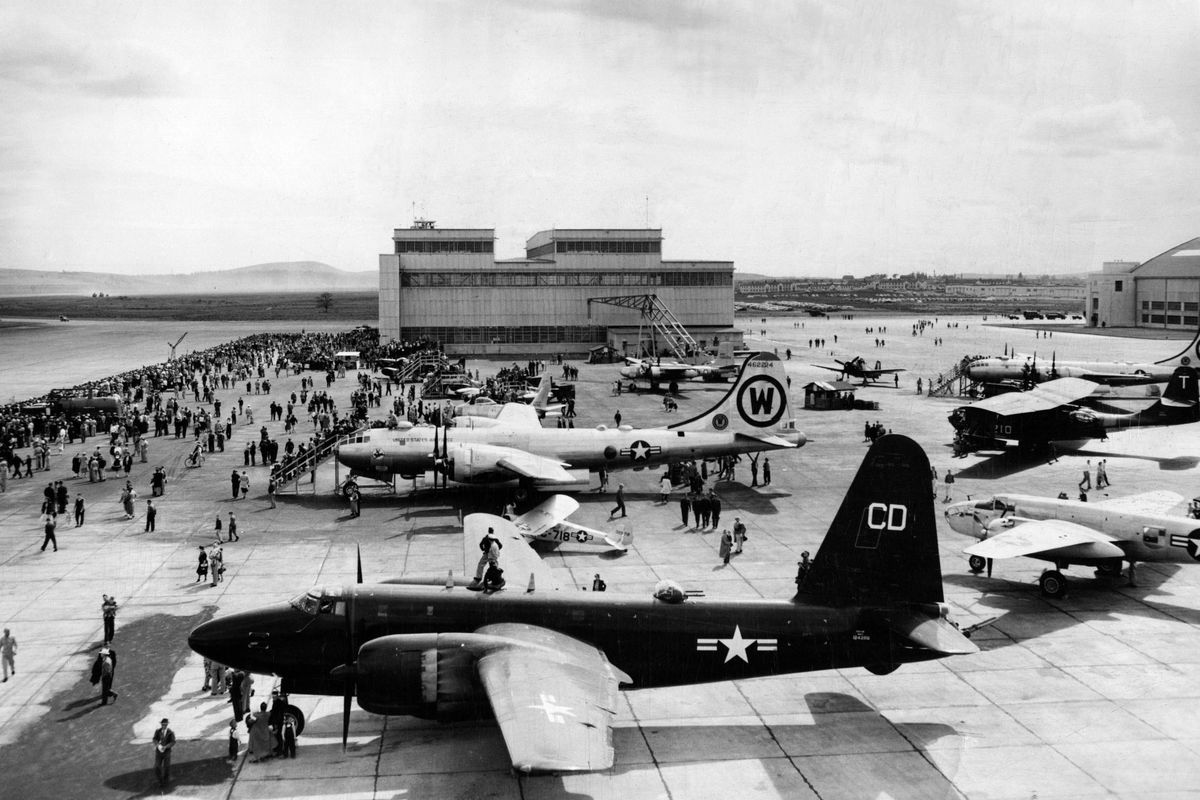This column reflects the opinion of the writer. Learn about the differences between a news story and an opinion column.
Shawn Vestal: Guardian report exposes dreary truth that there’s no hope in Spokane except Zags

Another dreary, desperate day in Spokane.
The skies are gray. Our hopes are dim and dimming. We wander listlessly, zombies scouting for vestiges of community, trying not to get robbed. There’s rust on the Ferris wheel, the carousel is closed, the streets are piled with the cooling bodies of the murdered…
Good thing we’ve got a basketball team to root for! Otherwise, I’m not sure we could make it through another day.
As I don’t have to tell you, things here are terrible and worsening. We need – what? A sliver of hope? A twinkle of sunshine? A reason not to kill ourselves?
Thank God for GU basketball.
This used to be our little secret, the whole barely-hanging-on-by-the-skin-of-the-Zags’-success dynamic of the town. Usually we suffer in silence, unremarked upon by the world at large, apart from the occasional sneer from a sanctimonious Seattle bartender with a topknot. But our desperate predicament was revealed to the world Tuesday in a piece published by The Guardian of London, written by someone who grew up here and left for greener pastures and so is an expert on the town.
The piece was headlined, “How Gonzaga became the last hope for the struggling city of Spokane.”
The writer, Cody Delistraty, opens with a gripping personal anecdote about once bumping into Mark Few at church.
The writer says, “Great work,” as Few walks past in a yellow sweater.
Few responds, “Thanks.”
Killer lede, as we say in the biz. Delistraty goes on: “As coach of the Gonzaga men’s basketball team, he is the central – perhaps only – source of hope for a struggling city.”
Spokane, Delistraty writes, “sits on a tiny lump of a hill.” Right? Geographically very accurate. “The air smells of Ponderosa bark, and the city experiences all four seasons: temperatures soar over a hundred degrees in May and drop below zero in December.”
Those hundred-degree May days are brutal! One of the main reasons I personally find it almost impossible to go on living (though the National Weather Service claims we’ve never had one). All that keeps me cool are thoughts of Mark Few and his sweaters.
Things were once grand here in the Lilac City, long, long ago, but have since declined. “In 1974, there was a world expo that brought a trolley system, a gondola ride, and a more expanded downtown, replete with carousel and Ferris wheel, but the carousel is now closed most of the year, the Ferris wheel rusted.”
Have you ever heard a more accurate depiction of Spokane in your life? Some might say, I suppose, that the carousel is closed because it’s being restored as part of a major park overhaul in the midst of a booming downtown, or might wonder if that Ferris wheel is really so decrepit or symbolic, or might wonder how they’ve overlooked our trolley system, but that’s nitpicking.
Life here is hell, and you know it.
“As far as economics and quality of life goes” – a phrase that reflects the fact that even natives of this hellhole who have escaped to glorious, superior places still cannot tell whether to use a plural or singular verb – “Spokane has stayed essentially the same since its postwar slump: still poor, still dangerous.”
Nailed it. This guy has looked straight into the beating, bloody heart of the community. He notes Spokane is the nation’s 22nd most dangerous city (never mind that this ranking was a statistically ridiculous assessment that did not include major cities with high crime rates); he reveals that our unemployment rate is “stalled at about 7 percent” (though, to pick a nit, our unemployment rate has varied, from far above to below 7 percent; lately it’s hovered around 6 percent); he says that Trump’s message of “doom and gloom resonated acutely with Spokane” (though some might note that the city of Spokane actually tended to vote for, you know, the other candidate); and he pointed out the city’s poverty rate of 17 percent (which is actually fairly close to the accurate figure of 16 percent).
“Spokane, in short, is a town in desperate need of success, vicarious or otherwise,” he writes.
But where, oh where, can Spokane ever find success? One place and one place only.
Delistraty writes, “Spokane taxpayers were happy to help pour $25 million into the McCarthey Athletic Center.” Remember that, taxpayers? When we happily paid for the new gym at a private college? (If this were true, by the way, George McGrath would stand outside that gym at every game, hollering about potholes, wearing an Elmo shirt, sacrificing a goat.)
In the midst of this American carnage, we here in Spokane have almost no opportunities for connection, “few other forms of community.” If only there were churches and schools and neighborhoods and friendships and other universities with sports teams and annual events where people could gather annually to run around or play basketball on the streets or something, if only there were arts organizations and outdoor recreation and book clubs and gun clubs and running clubs – anything at all to rescue us from our tragic, misbegotten lives.
But all we’ve got is basketball. So enjoy it while you can, you sad, sad residents of Spokane, sitting in your “crumbling” houses with your Zags pennants. For when GU and Few succeed, “even if you’re from a desperate town you become, if only for a short while, a winner.”
